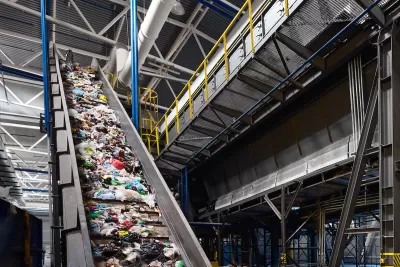Recycling offers modest environmental benefits but faces significant challenges in effectiveness and scalability, requiring systemic changes like reducing plastic production and exploring alternative waste reduction strategies.

Recycling has long been championed as a solution to reducing plastic waste and conserving resources, but its effectiveness remains fraught with challenges. Despite its good intentions, the world produces over 507 million tons of plastic annually, with less than 10 percent recycled globally. In the U.S., only a fraction of recyclable materials—such as glass, cans, and plastics—avoid landfills due to inadequate infrastructure and low participation rates. Compounding the problem, most plastics, even those bearing the familiar recycling symbol, cannot be effectively recycled, often ending up in landfills or polluting ecosystems.
As reported by Julia Musto, experts argue that recycling alone cannot solve the growing plastic waste crisis. Greenpeace and other organizations highlight that the plastics industry has long promoted recycling while increasing production, which is projected to triple by 2050. Toxicity concerns also grow with recycling, as many plastics leach harmful chemicals. Critics like MIT’s Andrew McAfee suggest that focusing on landfill disposal may be more environmentally sound than perpetuating ineffective recycling practices, given the minimal reduction in greenhouse gas emissions achieved through recycling.
While recycling has limitations, it still offers modest environmental benefits, such as saving energy and cutting water use compared to alternatives like incineration. However, experts emphasize the need for systemic change to make a meaningful impact. This includes reducing plastic production, investing in better recycling infrastructure, addressing contamination issues, and exploring complementary waste reduction strategies like composting, upcycling, and reusable systems. Without significant reforms, the environmental crisis driven by plastic waste will continue to escalate.
FULL STORY: Is recycling worth it?

Planetizen Federal Action Tracker
A weekly monitor of how Trump’s orders and actions are impacting planners and planning in America.

Congressman Proposes Bill to Rename DC Metro “Trump Train”
The Make Autorail Great Again Act would withhold federal funding to the system until the Washington Metropolitan Area Transit Authority (WMATA), rebrands as the Washington Metropolitan Authority for Greater Access (WMAGA).

The Simple Legislative Tool Transforming Vacant Downtowns
In California, Michigan and Georgia, an easy win is bringing dollars — and delight — back to city centers.

The States Losing Rural Delivery Rooms at an Alarming Pace
In some states, as few as 9% of rural hospitals still deliver babies. As a result, rising pre-term births, no adequate pre-term care and "harrowing" close calls are a growing reality.

The Small South Asian Republic Going all in on EVs
Thanks to one simple policy change less than five years ago, 65% of new cars in this Himalayan country are now electric.

DC Backpedals on Bike Lane Protection, Swaps Barriers for Paint
Citing aesthetic concerns, the city is removing the concrete barriers and flexposts that once separated Arizona Avenue cyclists from motor vehicles.
Urban Design for Planners 1: Software Tools
This six-course series explores essential urban design concepts using open source software and equips planners with the tools they need to participate fully in the urban design process.
Planning for Universal Design
Learn the tools for implementing Universal Design in planning regulations.
Smith Gee Studio
City of Charlotte
City of Camden Redevelopment Agency
City of Astoria
Transportation Research & Education Center (TREC) at Portland State University
US High Speed Rail Association
City of Camden Redevelopment Agency
Municipality of Princeton (NJ)





























